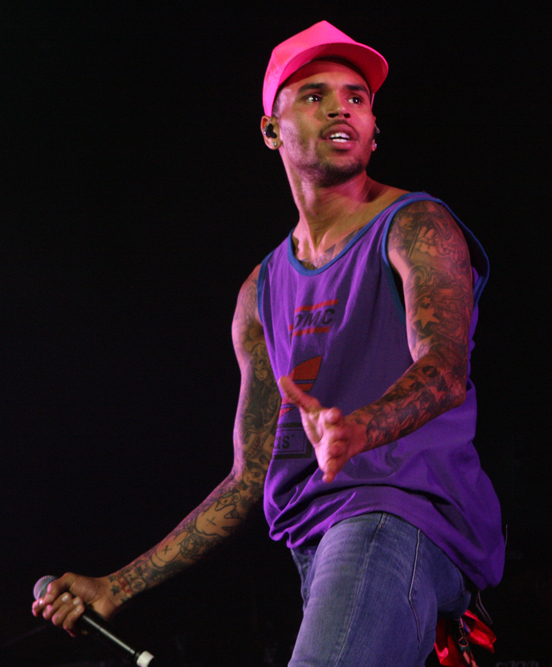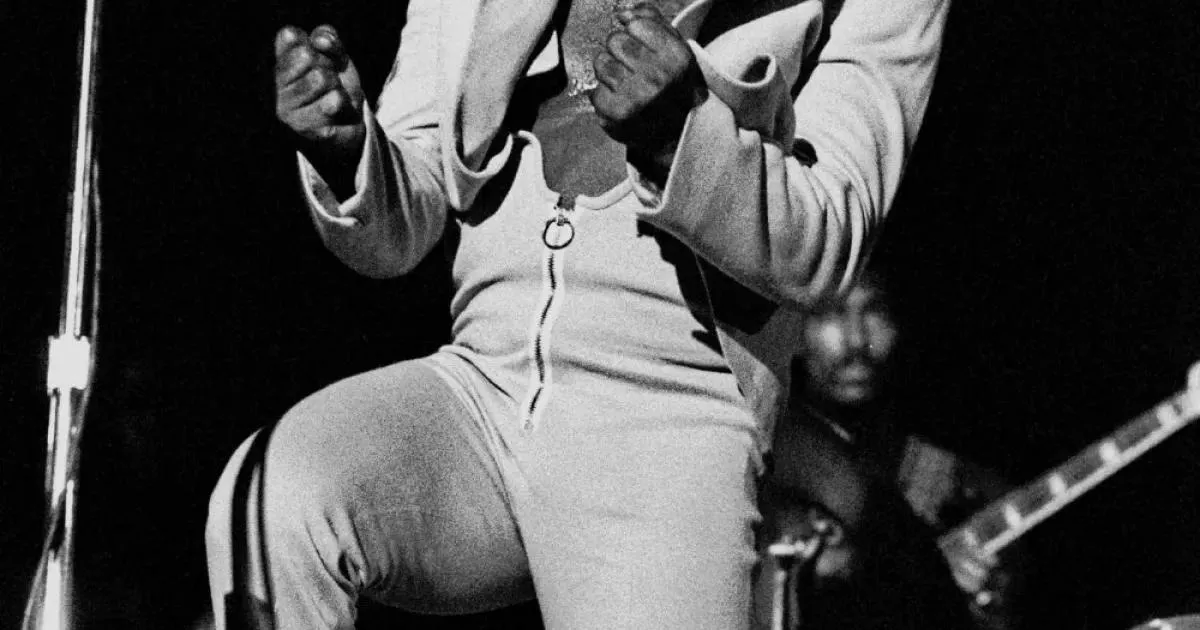How James Brown built a successful career. Explore key moments that defined the journey.
James Brown, an iconic American singer, songwriter, dancer, and musician, is widely regarded as the "Godfather of Soul" and the central progenitor of funk music. Known for his energetic performances and relentless work ethic, he earned nicknames like "Mr. Dynamite" and "the Hardest-Working Man in Show Business." His influential career spanned over five decades, shaping the development of various music genres. Brown was among the first inductees into the Rock and Roll Hall of Fame in 1986, and his music has been extensively sampled, highlighting his enduring impact on music and popular culture.
1944: First appearance at Augusta's Lenox Theater
In 1944, James Brown first appeared at Augusta's Lenox Theater, winning the show after singing the ballad "So Long".
1954: Joined Bobby Byrd's group
In 1954, James Brown joined Bobby Byrd's group, which had evolved from the Gospel Starlighters to an R&B group called the Avons, marking a significant step in his early music career.
1955: Contacted by Little Richard
In 1955, The group contacted Little Richard while performing in Macon. Richard convinced the group to get in contact with his manager at the time, Clint Brantley, at his nightclub.
March 1956: Release of "Please, Please, Please"
In March 1956, The Famous Flames released a re-recorded version of "Please, Please, Please" with King Records' Federal subsidiary in Cincinnati, Ohio. The song became the group's first R&B hit, selling over a million copies.
1957: Hired Ben Bart as manager
In 1957, James Brown replaced Clint Brantley as manager and hired Ben Bart, chief of Universal Attractions Agency. The original Flames broke up, after Bart changed the name of the group to "James Brown and His Famous Flames".
October 1958: Release of "Try Me"
In October 1958, James Brown released the ballad "Try Me", which became his first chart-topping R&B hit in the beginning of 1959.
April 24, 1959: Apollo Theater debut
On April 24, 1959, James Brown, the Flames, and his entire band debuted at the Apollo Theater, opening for Little Willie John.
1960: Started Multi-Tasking in Recording Studio
In 1960, James Brown began multi-tasking in the recording studio involving himself, his singing group, the Famous Flames, and his band.
1961: I've Got Money First 'rhythmic' shift
In 1961, "I've Got Money" features the first 'rhythmic' shift as one of the foundations of the Funk, played by Clayton Fillyau.
1961: Release of Two Albums with the James Brown Band
In 1961, James Brown released two albums with the James Brown Band earning second billing. With the Famous Flames, Brown sang lead on several more hits, including "Bewildered", "I'll Go Crazy" and "Think", songs that hinted at his emerging style.
October 24, 1962: Financed Live Recording at the Apollo
On October 24, 1962, James Brown financed a live recording of a performance at the Apollo and convinced Syd Nathan to release the album.
1962: Release of I've Got Money
In 1962, "I've Got Money" was released which features the first 'rhythmic' shift as one of the foundations of the Funk, played by Clayton Fillyau.
1962: Tammi Terrell Joins James Brown Revue
In 1962, Tammi Terrell joined the James Brown Revue. Brown became sexually involved with the 17 year old Terrell and physically abused her during their relationship.
June 1963: Release of Live at the Apollo album
In June 1963, the album "Live at the Apollo" was released and became an immediate hit, eventually reaching number two on the Top LPs chart and selling over a million copies, staying on the charts for 14 months.
1963: Elaborate Introduction by Fats Gonder
In 1963, James Brown's personal MC, Fats Gonder, gave him an elaborate introduction accompanied by drumrolls before he appeared on stage. Gonder incorporated Brown's various sobriquets along with the names of many of his hit songs. This introduction was captured on Brown's 1963 album Live at the Apollo.
1964: Formation of Fair Deal production company
In 1964, James Brown and Bobby Byrd formed the production company, Fair Deal, linking the operation to the Mercury imprint, Smash Records.
1964: Cape Routine in The T.A.M.I. Show
James Brown performs a version of the cape routine in the film of the T.A.M.I. Show (Teen Age Music International Show) in 1964 in which he and the Famous Flames upstaged the Rolling Stones.
1965: Released 'Papa's Got a Brand New Bag'
In 1965, James Brown released his song "Papa's Got a Brand New Bag", which became his first top ten pop hit and won him his first Grammy Award.
1967: Release of "Cold Sweat"
In 1967, James Brown released "Cold Sweat", considered by some critics to be the first true funk song, hitting number one on the R&B chart.
April 5, 1968: Free Concert at the Boston Garden
On April 5, 1968, a day after the assassination of Martin Luther King, Jr., James Brown provided a free citywide televised concert at the Boston Garden to maintain public order and calm concerned Boston residents. This was done over the objections of the police chief, who wanted to call off the concert. The show was later released on DVD as Live at the Boston Garden: April 5, 1968.
1968: Recordings of "Give It Up or Turnit a Loose" and "Licking Stick-Licking Stick"
In 1968, James Brown recorded "Give It Up or Turnit a Loose" and "Licking Stick-Licking Stick", featuring a more developed version of his mid-1960s style.
1968: Release of "Say It Loud – I'm Black and I'm Proud"
In 1968, James Brown released "Say It Loud – I'm Black and I'm Proud", a hit song of social commentary.
1968: Release of "America Is My Home"
In 1968, James Brown, in response to a growing urge of anti-war advocacy during the Vietnam War, recorded the song, "America Is My Home". In the song, Brown advocated patriotism and exhorted listeners to "stop pitying yoursel[ves] and get up and fight". At the time of the song's release, Brown had been performing for troops stationed in Vietnam.
January 1969: Performance at Nixon's Inaugural Ball
In January 1969, James Brown began supporting Republican president Richard Nixon after being invited to perform at Nixon's inaugural ball.
1969: Recording of "Funky Drummer"
In 1969, James Brown recorded "Funky Drummer", featuring a more developed version of Brown's mid-1960s style.
1969: Recording Social Commentary Songs
In 1969, James Brown recorded two more songs of social commentary, "World" and "I Don't Want Nobody to Give Me Nothing", the latter song pleading for equal opportunity and self-reliance rather than entitlement.
1970: Recording "Get Up, Get into It, Get Involved"
In 1970, in response to some black leaders for not being outspoken enough, James Brown recorded "Get Up, Get into It, Get Involved" and "Talkin' Loud and Sayin' Nothing".
1971: Firing of J.B.'s Members
In 1971, James Brown fired Catfish and Bootsy Collins, members of the J.B.'s, after suspecting they were using drugs during a performance. The members intentionally took LSD during the show, violating Brown's drug-free policy.
1972: Recording "King Heroin" and "Public Enemy"
As the 1970s continued, in 1972 James Brown continued to record songs of social commentary, most prominently "King Heroin" and the two-part ballad "Public Enemy", which dealt with drug addiction.
1974: Release of "Funky President"
In 1974, James Brown composed the hit song, "Funky President (People It's Bad)", right after Gerald Ford took Nixon's place. This followed his composition of "You Can Have Watergate (Just Gimme Some Bucks And I'll Be Straight)" after reversing his support of Nixon.
1983: Induction into the Georgia Music Hall of Fame
In 1983, James Brown was inducted into the Georgia Music Hall of Fame.
January 23, 1986: Induction into the Rock and Roll Hall of Fame
On January 23, 1986, James Brown was one of the first ten inductees into the Rock and Roll Hall of Fame, marking a significant recognition of his contributions to music.
February 25, 1992: Lifetime Achievement Award at the Grammy Awards
On February 25, 1992, James Brown was awarded a Lifetime Achievement Award at the 34th annual Grammy Awards.
1996: Encyclopedia of African-American Culture and History
According to the Encyclopedia of African-American Culture and History (1996), as a vocalist, James Brown performed in a forceful shout style derived from gospel music, and "his rhythmic grunts and expressive shrieks harked back farther still to ring shouts, work songs, and field cries".
January 10, 1997: Star on the Hollywood Walk of Fame
On January 10, 1997, a ceremony was held to honor James Brown with a star on the Hollywood Walk of Fame.
1997: Super Bowl XXXI Halftime Performance
In 1997, James Brown performed in the Super Bowl XXXI halftime show.
June 15, 2000: Induction into the New York Songwriters Hall of Fame
On June 15, 2000, James Brown was inducted into the New York Songwriters Hall of Fame.
2000: Blues Brothers 2000 closing credits
Over the closing credits of the film Blues Brothers 2000 in 2000, James Brown performs a version of the cape routine.
2001: Appearance in Beat the Devil
In 2001, James Brown appeared in Tony Scott's short film Beat the Devil, alongside Clive Owen, Gary Oldman, Danny Trejo and Marilyn Manson.
August 6, 2002: Honored as First BMI Urban Icon
On August 6, 2002, James Brown was honored as the first BMI Urban Icon at the BMI Urban Awards.
2002: Creation of I Feel Good, Inc. Trust
In 2002, James Brown advised in his will that most of the money in his estate go into creating the I Feel Good, Inc. Trust to benefit disadvantaged children and provide scholarships for his grandchildren.
2002: Cameo Appearances in Films
In 2002, James Brown made a cameo appearance in the Jackie Chan film The Tuxedo and appeared in Undercover Brother, playing himself.
June 24, 2003: Lifetime Achievement Award at the BET Awards
On June 24, 2003, James Brown appeared on the BET Awards and received the Lifetime Achievement Award presented by Michael Jackson, and performed with him.
December 7, 2003: Recipient of Kennedy Center Honors
On December 7, 2003, James Brown was a recipient of Kennedy Center Honors in recognition of his accomplishments as an entertainer.
2004: Opening for Red Hot Chili Peppers
In 2004, James Brown opened for the Red Hot Chili Peppers at several Hyde Park concerts in London.
2004: Golden Plate Award from American Academy of Achievement
In 2004, James Brown received the Golden Plate Award of the American Academy of Achievement presented by Awards Council member Aretha Franklin.
March 2005: Recording Sessions for Unreleased Album
In March 2005, James Brown participated in recording sessions for an intended studio album with Fred Wesley, Pee Wee Ellis, and other longtime collaborators. Although the album remained unreleased, a track from the sessions, "Gut Bucket", later appeared on a compilation CD included with the August 2006 issue of MOJO.
July 6, 2005: Performance at Live 8 Concert
On July 6, 2005, James Brown appeared at Edinburgh 50,000 – The Final Push, the final Live 8 concert, where he performed a duet with British pop star Will Young on "Papa's Got A Brand New Bag".
2005: Inspiration from Gorgeous George
In his 2005 autobiography I Feel Good: A Memoir in a Life of Soul, James Brown credited wrestler Gorgeous George as the inspiration for both his cape routine and concert attire, stating that seeing George on TV helped create the James Brown you see on stage.
August 2006: "Gut Bucket" on MOJO Compilation CD
In August 2006, a track called "Gut Bucket" from James Brown's unreleased recording sessions in March 2005 appeared on a compilation CD included with the August 2006 issue of MOJO.
August 20, 2006: Performance at Festival of the Golden Gate
On August 20, 2006, James Brown's final major U.S. performance was in San Francisco as headliner at the Festival of the Golden Gate (Foggfest) on the Great Meadow at Fort Mason.
October 27, 2006: BBC Electric Proms Concert
On October 27, 2006, James Brown played a full concert as part of the BBC's Electric Proms at The Roundhouse, supported by the Zutons, with special appearances from Max Beasley and the Sugababes.
November 14, 2006: Induction into the UK Music Hall of Fame
On November 14, 2006, James Brown was inducted into the UK Music Hall of Fame and performed at the ceremony.
November 2006: Induction into UK Music Hall of Fame
In November 2006, James Brown's last televised appearance was at his induction into the UK Music Hall of Fame, before his death in December.
2006: Seven Decades of Funk World Tour
In 2006, James Brown continued his Seven Decades of Funk World Tour.
2007: Posthumous Collaboration with Annie Lennox
Before his death, James Brown had been scheduled to perform a duet with singer Annie Lennox on the song "Vengeance" for her new album Venus, which was released in 2007.
April 14, 2012: The Famous Flames Retroactively Inducted into the Rock and Roll Hall of Fame
On April 14, 2012, The Famous Flames were automatically and retroactively inducted into the Rock and Roll Hall of Fame alongside James Brown, without the need for nomination and voting, on the basis that they should have been inducted with him in 1986.
Mentioned in this timeline

Chris Brown is a highly successful American singer songwriter rapper...

Michael Joseph Jackson the King of Pop was a highly...

Martin Luther King Jr was a pivotal leader in the...

John F Kennedy JFK was the th U S President...

Jackie Chan born Fang Shilong is a highly influential Hong...
Nigeria is a West African nation the most populous in...
Trending

22 minutes ago Rachel Weisz Explores Steamy Fantasies in Netflix's 'Vladimir' Series Featuring Leo Woodall.

22 minutes ago Zack Snyder reveals why Christian Bale's Batman didn't appear in BvS and DCEU.
22 minutes ago Kevin Warsh's potential impact on Federal Reserve policies and rate cut outlook.
23 minutes ago Yavapai College Board to meet in person; Midland College approves drilling agreement.

23 minutes ago Vodafone and Amazon Leo Partner to Expand Mobile Coverage in Europe and Africa

23 minutes ago Luke Grimes discusses Monica Dutton's fate in 'Marshals' and his role as Kayce.
Popular

Jesse Jackson is an American civil rights activist politician and...

Hillary Diane Rodham Clinton is a prominent American politician lawyer...

Jim Carrey is a Canadian-American actor and comedian celebrated for...

XXXTentacion born Jahseh Dwayne Ricardo Onfroy was a controversial yet...

Michael Joseph Jackson the King of Pop was a highly...

Bill Clinton served as the nd U S President from...
